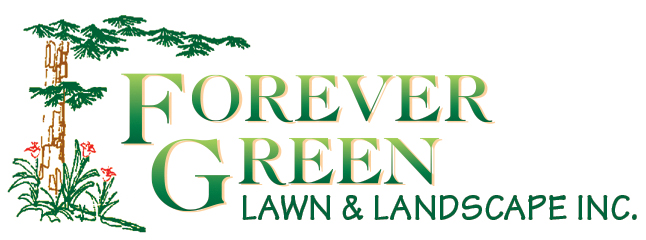Summer is just a few days away and everyone is gearing up to bask in the beautiful sunshine and enjoy spending more time outdoors. With BBQ season so close within reach, it’s time to start preparing your landscape for the warmer temperatures. After the long, cold, hard winter, residential and commercial landscapes all across Ontario are most likely in need of some sprucing up and now is the time to do it! For those of us who don’t have the time, energy, or natural green thumb to beautify an outdoor space, here are some helpful summer landscape and lawn maintenance tips to help you get started.
Inspect Your Irrigation Systems Regularly
Your outdoor space is only as strong as your irrigation system. If your irrigation system is clogged up, broken down, or isn’t working properly, then you can’t properly water your lawn and plants. Clogs need to be cleared and leaks need to be repaired immediately so that proper landscape maintenance is implemented throughout the season.
Rake Up Debris and Leaves
Raking up debris and leaves is a critical aspect of summer landscape maintenance partly because it helps clean up your outdoor space and it also helps to lightly aerate the soil, letting it breathe. During the winter months, a lot of garbage, debris, loose twigs, sticks, and leaves can get trapped under heavy snowfalls. While some of these organic materials can provide nutrients for your soil, litter needs to be removed immediately. Collect all excess debris—organic or otherwise—and separate them into different categories. Throw out all the garbage, but keep the organic matter because it can usually be composted and returned to your soil to provide essential nutrients.
Apply Mulch at the Base of All Your Plants
Alongside fertilizer, organic or store-bought mulch can provide essential nutrients and vitamins for your plants. However, choosing the right mulch based on your region, the climate, and the plant species in your yard is important. Certain plants benefit more from organic mulch that was composted using local natural materials. Other plants might benefit from store-bought mulch mixtures that are fortified with certain essential vitamins and minerals. If you’re not sure of what type of mulch to use, consult a garden and landscape expert in your area.
Mow Your Lawn Correctly
A lot of residential and commercial property owners don’t realize that there’s actually a correct and incorrect way to mow your lawn. To implement excellent lawn maintenance this summer, it’s important to master the proper mowing techniques and mow your lawn often. Never let the grass grow longer than 2.5 to 3 inches. While tall grass retains more moisture which is good for the soil, it also provides shade and an ideal shelter for pests that tend to eat away at your beloved flowerbeds.
Ideally, you should be mowing your lawn at least once a week. This gives it enough time to grow in between clippings.
Water Plants and Grass Regularly
How often you water your outdoor space depends on a number of factors including plant species, grass species, and climate. Regions that are prone to short or long periods of drought may have certain watering restrictions, so be mindful of that. On the other hand, landscapes that are located in dry climates typically require more frequent watering due to the lack of rainfalls. Just be careful not to overwater plants and grass species that only need a small amount of irrigation and try not to water the plants directly. Instead, let them absorb moisture from the soil. Adhere to watering instructions on plant labels carefully to avoid overwatering.
Inspect the Health of Nearby Trees
Keep a close eye on trees that are either directly on your property or within close proximity to your landscape. Find out which trees you’re responsible to look after. Depending on your city by-laws, you might only be responsible for trees that are actually on your property. However, it’s important to monitor the health of all trees in and surrounding your property in case of rotting wood or branches. For one thing, rotting trees can spread diseases to greenery on your property and they also cause a potential safety hazard for passersby due to falling branches. If you notice that a tree just outside your property might be sick, contact your local city officials to have them remove it immediately.
To Prune or Not to Prune
When it comes to pruning your trees, bushes, and plants, the key to keeping them healthy and strong is moderation. Pruning is an important part of garden care because it rids your plants of dry twigs, leaves, and branches. Over-pruning, though, is a big no-no because it strips your trees and plants of their natural ability to provide shade for surrounding plants and anyone who uses your garden. That’s right: not all plants benefit from constant exposure to the sun. Some plant species actually require more shade than sunlight. Make sure to read up on plant species to learn which ones will fare better under shaded areas and which ones need direct sunlight all the time.
Perform Regular Soil Tests
Performing regular soil tests throughout the growing season can help keep your lawn and plants healthy. Excellent plant care all starts with healthy soil. Make sure the pH and acidity levels of your soil are perfectly balanced so that your plants are getting all of the nutrients they need.
Consult a Local Professional Landscaper
For 25 years, the landscaping experts at FOREVER GREEN LAWN & LANDSCAPE INC. have been providing professional landscape installation and maintenance services across Toronto and the GTA. If you need residential or commercial landscape maintenance in Brampton, Mississauga, Vaughan, or anywhere else in the GTA, we can help. Book your free onsite consultation today!


